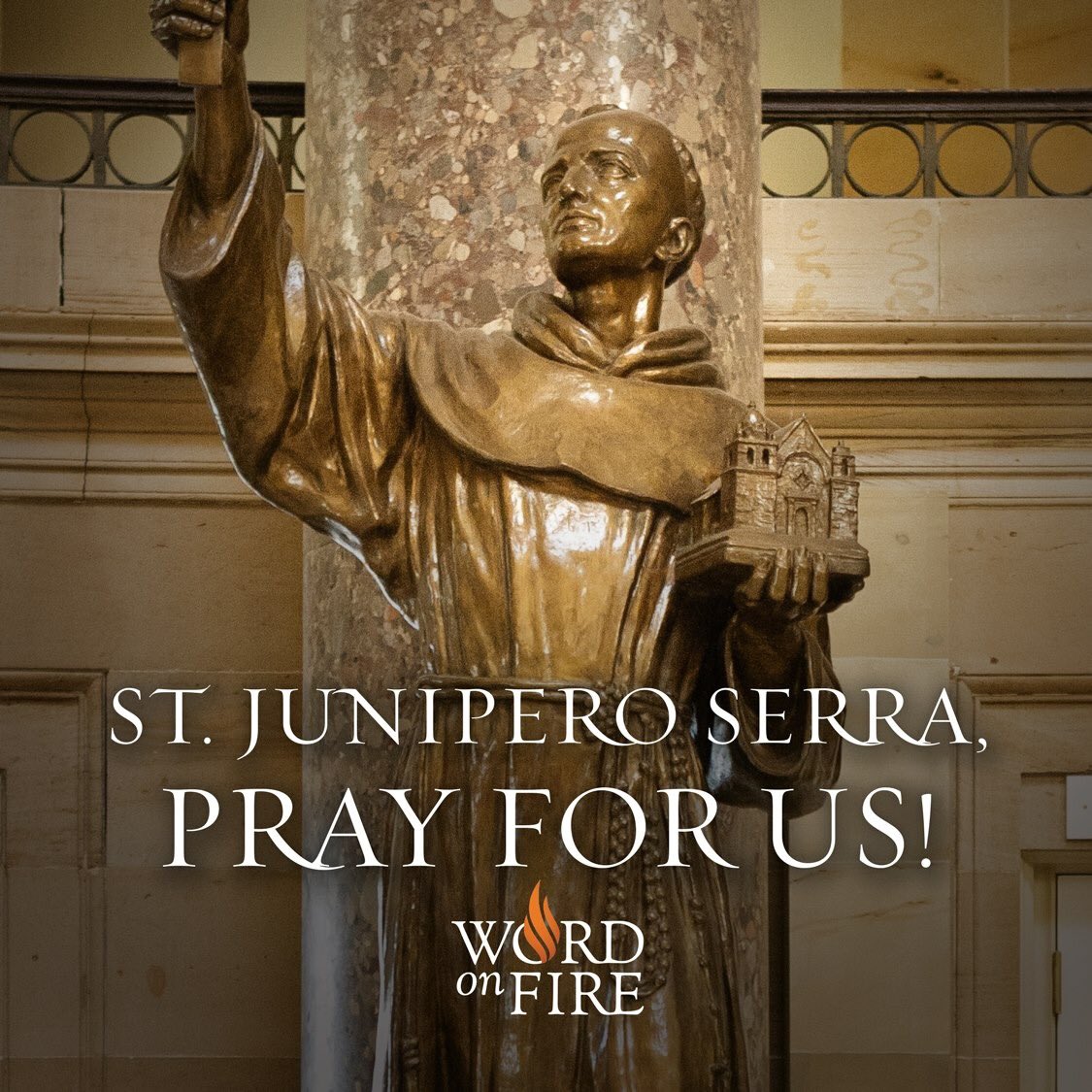1.
Happy #FeastDay of St. Martin de Porres! #pray4us pic.twitter.com/5L8zO34f5q
— DC Archdiocese (@WashArchdiocese) November 3, 2015
2. From a “Holy Dominicans” write-up:
Saint Martin de Porres Friar Martin de Porres was born in Lima, Peru in 1579 of John, a Spanish nobleman, and Anna Velasquez, a freed slave. As a boy he studied medicine which later, as a member of the Order, he put to good use in helping the poor. Martin was received as a servant at the priory of the Holy Rosary in Lima where he was finally admitted to profession as a cooperator brother in 1603. In his life of prayer Martin was especially devoted to the Blessed Sacrament and to the Passion of Our Lord. He was noted for his care of the poor and the sick. He died at Lima on November 3, 1639.
3. How Can We Live Like St. Martin de Porres?
4.
The 1962 canonization of St. Martin de Porres, as reported in EBONY magazine: https://t.co/JBRYQEaYNh #saints pic.twitter.com/Aa2P8MyMRK
— Amy Welborn (@amywelborn2) November 3, 2015
6. From a Dominican student brother:
behind all the miracles and virtues is the prayer of St. Martin. He spent his nights in vigils, adoring the Eucharist and contemplating the Crucifix, often giving way to ecstasy and even levitation. During the day, he would interweave his work with prayer, interiorly uniting Martha and Mary. And to his prayer, he added austere fasting and penances. Again he’s impressive, but tough to imitate.
7. And:
But Martin’s prayer was simply the lived intimacy of an adopted son with the Father, and this intimacy is extended to all the faithful. Jesus himself invited us to pray this way, teaching us the invaluable words: “Our Father, who art in heaven…”
Today, let us take St. Martin as our model. May he guide us in living the grace of God’s adopted children, and may his great life—his miracles, virtues, and prayer—inspire us to let the Father do great things through us.
8. From a homily given at the canonization of Saint Martin de Porres by Saint John XXIII, in the Office of Readings in the Liturgy of the Hours today:
The example of Martin’s life is ample evidence that we can strive for holiness and salvation as Christ Jesus has shown us: first, by loving God with all your heart, with all your soul, and with all your mind; and second, by loving your neighbor as yourself.
When Martin had come to realize that Christ Jesus suffered for us and that he carried our sins on his body to the cross, he would meditate with remarkable ardor and affection about Christ on the cross. He had an exceptional love for the great sacrament of the Eucharist and often spent long hours in prayer before the blessed sacrament. His desire was to receive the sacrament in Communion as often as he could.
Saint Martin, always obedient and inspired by his divine teacher, dealt with his brothers and with that profound love which comes from pure faith and humility of spirit. He loved men and because he honestly looked on them as God’s children and as his own brothers and sisters. Such was his humility that he loved them even more than himself, and considered them to be better and more righteous than he was.
He did not blame others for their shortcomings. Certain that he deserved more severe punishment for his sins than others did, he would overlook their worst offenses. He was tireless in his efforts to reform the criminal, and he would sit up with the sick to bring them comfort. For the poor he would provide food, clothing and medicine. He did all he could to care for poor farmhands, blacks, and mulattoes who were looked down upon as slaves, the dregs of society in their time. Common people responded by calling him, “Martin the charitable.”
The virtuous example and even the conversation of this saintly man exerted a powerful influence in drawing men to religion. It is remarkable how even today his influence can still move us toward the things of heaven. Sad to say, not all of us understand these spiritual values as well as we should, nor do we give them a proper place in our lives. Many of us, in fact, strongly attracted by sin, may look upon these values as of little moment, even something of a nuisance, or we ignore them altogether. It is deeply rewarding for men striving for salvation to follow in Christ’s footsteps and to obey God’s commandments. If only everyone could learn this lesson from the example that Martin gave us.
9.
Eucharist today at noon in Christ the King Chapel. Today is the feast day of St. Martin de Porres. @kingsatwestern pic.twitter.com/dDrd3lDzk9
— King'sCampusMinistry (@kingscampusmin) November 3, 2015
10. When running down a litany of sorts of the saints of the Americas at the North American Pontifical College this May, Pope Francis included him with “servants of the suffering and the marginalized.”
12. From the Pope Emeritus before he was Benedict:
The great social saints were in reality always the great Eucharistic saints. I would like to mention just two examples chosen entirely at random.
First of all, the beloved figure of St Martin de Porres, who was born in 1569 in Lima, Peru, the son of an Afro-American mother and a Spanish nobleman. Martin lived from the adoration of the Lord present in the Eucharist, passing entire nights in prayer before the crucified Lord in the tabernacle, while during the day he tirelessly cared for the sick and assisted the socially outcast and despised, with whom he, as a mulatto, identified because of his origins. The encounter with the Lord, who gives himself to us from the cross, makes all of us members of the one body by means of the one bread, which when responded to fully moves us to serve the suffering, to care for the weak and the forgotten.
14. From an Archbishop Lori homily:
By serving the poor and the sick with so much love and skill, he claimed for himself the lowest place in society, by his willingness to associate with the Dominicans first as a servant and then to spend his life in service of the sick, the poor, and the orphan. For that reason he is exalted in heaven and celebrated by the Church throughout the world. His life became a living sign of the Triune God’s utterly self-giving love in which we created and by which we were redeemed, a love like no other which was definitively revealed by Christ and communicated to us by the Holy Spirit.












